This week, Charlotte Smith from 3 Cow Marketing offers up some hard-won advice from her small milk, eggs, and poultry farm in Oregon. As a small farmer offering unique products, Charlotte is familiar with the pricing, sales, and marketing processes of the niche producer. For more information about what Charlotte does, see her website.
“How do I price my products? What do I charge?”
For small farmers of any kind, this is a common question. (And why we at 3 Cow Marketing created our free pricing course + calculator.)
However, it’s brought up lots of comments about customers who challenge our prices. It’s a given that the prices for our handcrafted, homegrown, sustainable, or artisan goods are going to be higher priced than one might find for similar products in the store or on Amazon.
When produced on such a small scale, they require far more resources, and we must reflect that in the price. Also, they are typically far healthier, in the case of food and vegetables, and fresher and more unique in the case of flowers.
It’s a “given” for you and I, right? But that is not necessarily a given for our customers who seek us out for the first time.
Opened up to scrutiny
When we decide to start our farm and help people by selling them our handiwork direct to consumer, a side challenge comes up that we didn’t expect – we open ourselves up to scrutiny on everything!
When I’m thumbing through an online catalog, or walking through a department store, and am aghast at the price on a pair of cute shoes (that weren’t meant to be), there’s no one there to take my criticism, and I wander on.
But when you’re standing there on your farm, in your booth, at your drop site there’s nothing in between you and your customer’s initial sticker shock – you have to stand there and take it!
That can make us defensive and super-tempted to be snarky right back – “well if you want Walmart prices then feel free to head there,” is a commonly suggested response from well-intentioned fellow farmers. Or, “fire that customer!”
Sadly, this will just drive you out of business.
A way you can flourish
I believe in, I practice, and I teach “farm marketing from the heart.” As a matter of fact, I wrote the book on it! (ha!!)
The reason I titled my book and my signature course that way is that when we communicate from a heart of compassion, and we remember to step into our customer’s shoes, we realize that we just had sticker shock yesterday.
And last week. And last month.
You and I have sticker shock all the time. So we have no business getting nasty with our customers.
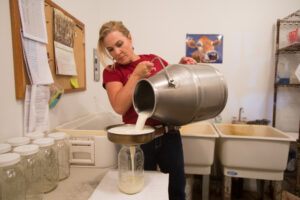 You and I were once new to farm fresh food, too. I remember that first gallon of raw milk I bought for $12 almost 12 years ago. I had no clue why it was so much money. The farmer did a fantastic job of being compassionate and educating me. Didn’t make me feel dumb one bit! Looking back, they handled it with such grace.
You and I were once new to farm fresh food, too. I remember that first gallon of raw milk I bought for $12 almost 12 years ago. I had no clue why it was so much money. The farmer did a fantastic job of being compassionate and educating me. Didn’t make me feel dumb one bit! Looking back, they handled it with such grace.
When we forget we were once there, that we have questioned others’ prices, too, and we choose to take our defensiveness out on our customers, we are chasing our customers away and jumping on the fast track to bankruptcy. Please don’t let this be you.
There is a better way, the way I call “marketing from the heart.”
It has the opposite effect of ‘snarky-marketing’ – it builds up a solid, supportive, customer base much quicker.
And did you know, when you practice my 3 step plan with compassion, these complainers often become your biggest champions, referring you hordes of customers?
In the video below we talk about just that – why you and I must remember that we, too, have sticker shock on a regular basis. Therefore, if we have a plan in place to deal with it in our businesses, we’ll be successful and feel so good about having treated a fellow human being with the respect they warranted.
The 3-step process to handle criticism
I’ve developed a 3 step process that I use with everyone who questions, exclaims, or is aghast at my $24/gallon milk. Read through the plan, customize it for yourself and even practice it out loud. It’ll make you far more likely to respond with grace and compassion, and you’ll have a far better chance of gaining a rock star customer!
Especially now that many of you have taken our free pricing course and realized you need to increase your prices, you’ll want to prepare your response so you feel confident.
1) Affirm to them that yes, they are correct.
Please make sure to use an encouraging, compassionate voice tone, not sarcastic (as tempting as that is, that’s your defensiveness trying to rear its ugly head, and you can rise to a higher level with a compassionate response).
Here’s how it may sound:
“Yes, you sure can get milk at the store for $5 a gallon. I know our price must be a shock to you! It sure was to me when I first started buying farm fresh milk ten years ago.”
(See how you’re showing empathy, building rapport and trust? They will appreciate you not making them feel stupid for their automatic response).
2) Give a short explanation.
Short is key. Don’t go into all your costs – that opens you up for more scrutiny. Just pick your 2-3 favorite reasons your product is costlier than others.
Again, squelch the defensive voice tone and please be encouraging. Explain to them.
“I know it can be a shock at first, and there are a few reasons our product is more expensive. I’m a small farm with 3 cows, and milk in the stores comes from feedlots with 1,000’s of cows, so therefore the cost of production of milk in the stores is a fraction of my costs. Here’s a blog post (or handout) where I go into several reasons why our customers will choose to buy our milk even though they are on a budget and they can find it cheaper in the store. I know it seems like a high price compared to similar products, and this article should give you some insight into our handcrafted product.”
3) Give them loving permission to make another choice.
It’s amazing how their guard comes down when you use your most compassionate, understanding and encouraging voice tone and say something like:
“I totally understand not everyone can make a choice to buy our product. Sometimes you’ve got to prioritize something else in your life besides (our lettuce, eggs, milk, etc.) and I 100% get that. We’ve all got different things going on in our families and must spend our dollars accordingly. Our milk does not work for everyone’s budget. If you decide it works for you, we’d love to have you.”
I use this three step process all the time!! I teach it to my employees, too. And it has the most wonderful effect. People love us!! We make them feel safe being themselves and having a reasonable response to something they’ve never experienced before, such as homegrown products that are twice (or more) the cost of a store.
Your former criticizers are now your biggest supporters!
And the neatest thing happens – even those who choose not to buy from us because they prioritize something else in their budgets leave our farm and send lots of referrals our way!! They’ll tell people things like, “If our budget allowed for raw milk we’d get it from this farm!”
But if you give them that sarcastic response (that is oh-so-tempting, trust me, I know) you’ll hurt their feelings, and they’ll respond in a nasty way to cover up the hurt, and not only will you never see them again, they’ll say not-so-nice things about you, too. All because of how you made them feel.
You and I have the opportunity to make everyone feel great about themselves when they approach us. When we practice this 3 step process, we will have an army of people out there spreading the word about how wonderful our farm is, no matter the cost, all because we made them feel good about themselves and safe asking questions.
I hope you’ll join me in marketing from a place of compassion and empathy – you’ll see your farm transform and flourish before your eyes!
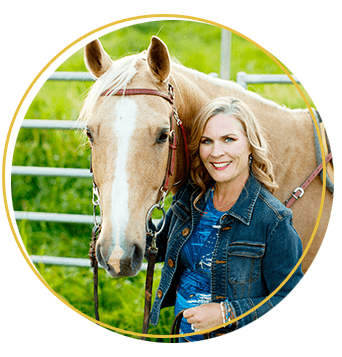 Charlotte Smith owns a farm in Oregon, producing raw milk, eggs, pork, and poultry.
Charlotte Smith owns a farm in Oregon, producing raw milk, eggs, pork, and poultry.
After witnessing too many farmers going out of business due to not being sustainable, she founded 3CowMarketing.com, an online marketing training company helping farmers across the nation learn online marketing techniques to grow a successful business.
Due to her dedication to improving the soil, animals and the people who eat their products, In 2016 Charlotte was named one of the Top 25 Most Influential Women in the World in Food and Agriculture by the nonprofit, Food Tank.
Charlotte is also the proud mother of a United States Marine, lives in St. Paul, Oregon on the farm with her husband, Marc, (a teacher) and her 2 daughters.
You can visit Charlotte at www.3cowmarketing.com.

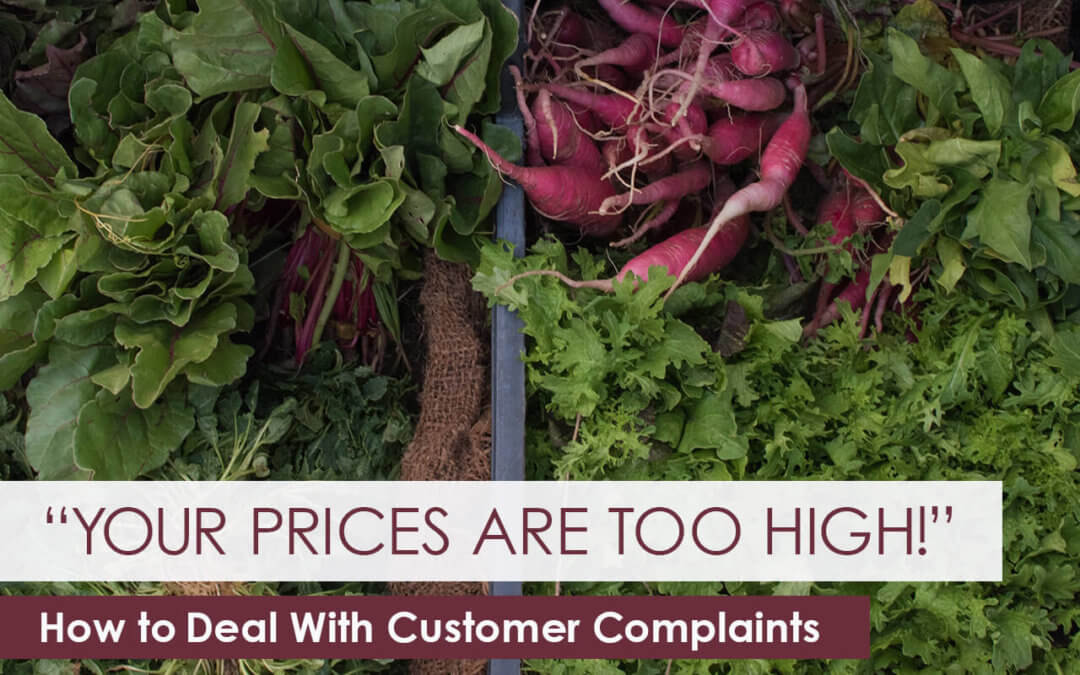
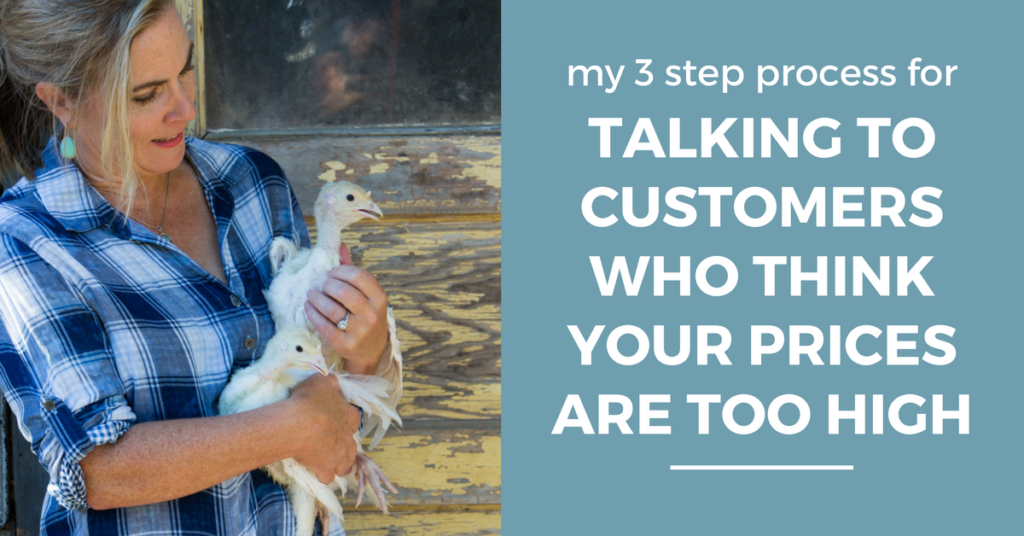
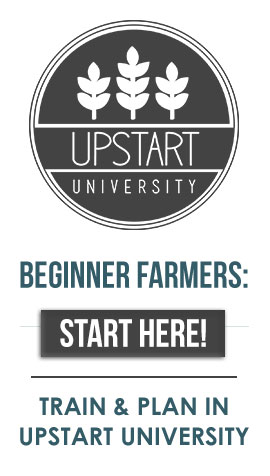
I think you missed the key to selling any product (no matter the price) and that is focusing on value. Yes, you can buy less expensive milk but you aren’t getting the same quality. You also aren’t getting milk from highly content cows that receive the same loving care as my herd….etc etc etc. People purchase value and benefits, not features.
No matter what business you are in, some customers will complain. But if you see objections as a sign that they are actually signaling intent to buy (if the perceived barrier is removed)then you can turn it into an opportunity to close the sale. Just my 2 cents
Hi Cheryl – thanks for your comment!
You are so right! Focusing on value is one component of a complete marketing strategy. This post references the pricing course and day 3 is all about value and how to determine what that is for your customers, as well.
So hang in there, you just haven’t gotten there yet. This post is just a snapshot of the bigger course – I drip it out over 6 days for better learning.
Thanks again for sharing –
Charlotte